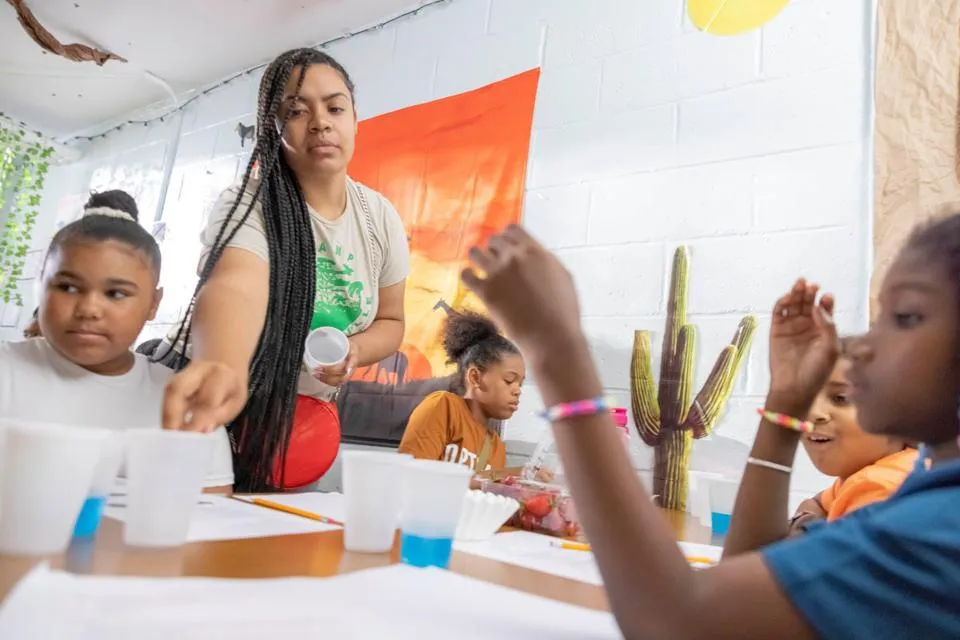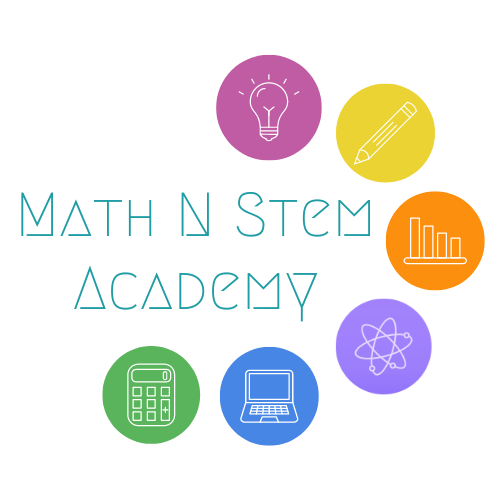🌟Welcome to What the Math?!?🌟
Discover a place where learning math is not only easy but also entertaining!
YOU Belong In Stem. Yes, I Mean You!

Ephraim Collins never thought he’d make it this far. He’s a sophomore majoring in computer science at New Mexico State University.
Like most African American students in the United States, Ephraim never had a Black teacher, and not one teacher of color in any STEM class. Despite his persistent curiosity about computer science, Ephraim thought he wasn’t a math person. In 5th grade, his math teacher told him he would amount to nothing in life, because his test scores were so low. He remembers crying, worrying he could never fulfill his dreams.
But his mom made an important decision that would change Ephriam’s path. She switched him to a new class, with a new teacher. “I will never forget her,” Ephraim said to the unCommission, a story gathering project. This new teacher “went around and made sure every person got it. And also, she made it relatable in life.” Ephraim excelled in math and is majoring in computer science, but he’s the only Black person in his classes.
Ephraim’s story is not unique, and the U.S. Department of Education is taking notice. On October 12, the Department announced YOU Belong in STEM, a new initiative to modernize STEM education. The goal is that all students and educators, no matter their background, know without hesitation that they have a place in STEM classrooms and careers.
This emphasis on belonging is an intentional strategy, a hypothesis about what might have been missing from prior efforts to address persistent gaps in STEM achievement, particularly among Black, Latinx, and Native American students. For example, research from PNAS Nexus, published by Oxford University Press, indicates that students of color who earn low grades in introductory STEM classes are less likely to earn degrees in these subjects than similar white students. In 2017, when Black, Latinx, and Native American people comprised 34% of STEM-intending incoming college students, only 18% of them actually earned undergraduate STEM degrees. The Department’s YOU Belong in STEM effort is a big bet that the key to unlocking opportunity is infusing rigorous STEM with belonging.
It’s a wise bet. When students feel like they belong in the classroom, it can make all the difference. Research from the Educational Psychology Review in 2021 demonstrated that a sense of belonging has powerful positive long- and short-term impacts on students’ psychological and academic outcomes. Schools around the country have shown that when students, especially students of color, experience joyful, authentic, rigorous STEM and know that they can succeed, they do – and, in fact, that in such schools, all students improve.
Deputy Secretary of the Department, Cindy Marten, is criss-crossing the country to spread the word, rewriting the STEM narrative of, in her words, “who belongs in STEM learning and careers that, over generations, have left out millions of girls and young women, and students of color.” The Department announced several next steps: a “Dear Colleague” letter forthcoming on opportunities for states, districts, and schools to recruit, respect, and retain high-quality STEM educators and use American Rescue Plan funds to support equitable and excellent STEM education; a “Bright Spot” campaign to identify and elevate states and districts that are creating systemic approaches to equitable and effective recruitment and retention of a diverse set of STEM educators; and organizing a national community of practice to improve STEM teaching and learning in underserved communities. The Department will also be convening states, districts, and STEM education organizations to learn from each other and commit to ongoing efforts.
A focus on belonging isn’t just about STEM. It’s about addressing the silent epidemic of loneliness and depression that’s rocking school-aged children. CDC data from 2021 found that 44% of high school students said they felt persistently sad or hopeless over the past year.
“I was able to do it,” Ephraim explained, “even though I thought I wasn’t a math person. I was able to overcome.” By marrying rigor with belonging in STEM classrooms, I hope Ephraim will move from being the exception to the norm.
MathNStem Academy Inc is a 501c3 nonprofit organization with the EIN: 92-0792329
© Copyrighted Material - All Rights Reserved 2024
